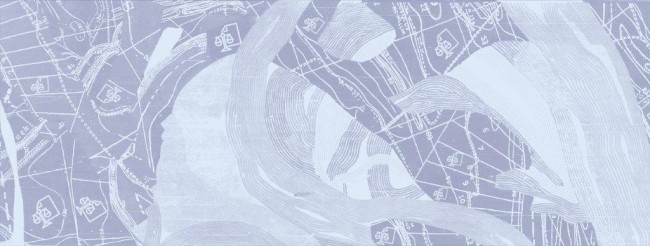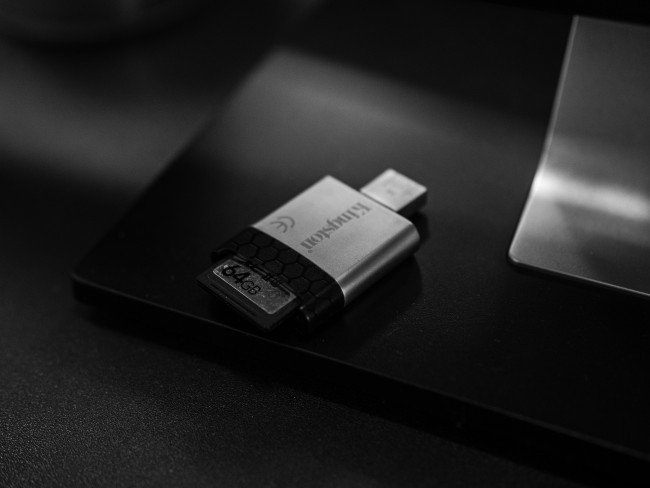On this page you'll find information about entitlement to study, study rights and responsibilities as a student. You can read about how to obtain your right to study and what is required to maintain it. Additionally, you will find information about applications, complaints, and ethical guidelines for students at UiS.
Entitlement to study
How to be granted entitlement to study:

Before you can be granted entitlement to study, you must have been admitted to a study programme or an individual course
Students who have been admitted to a study programme with a standard duration of 3 years are granted entitlement to study for up to 4 years.
Students who have been admitted to a master's degree with 90 or 120 credits are granted entitlement to study for up to 3 years.
Students who have been admitted to a study programme with a standard duration of 5 years are granted entitlement to study for up to 6 years.
Students who have been admitted to defined part-time studies are granted an entitlement to study of up to one year in excess of that which is deemed necessary for the part-time study.
Students who have been admitted to individual courses are granted an entitlement to study that corresponds with the duration of the course, usually one semester.
Leave of absence
Students may be granted up to one year's leave of absence. If leave is granted, this means that the time assigned for the studies must be extended accordingly. The Dean may stipulate other rules and conditions regarding the granting of leave of absence from studies.
Extensions to entitlement to study
The Dean may grant an extension of the entitlement to study for up to one year, in special circumstances or if the study is nearing completion.
If the entitlement to study is granted, the student may be required to wholly or partly complete the study in accordance with the curriculum or programme description applicable at the time the application is granted. The student must document the circumstances that are the reason for the application.
Maintaining Study Rights

To maintain your rights to study, you must, each semester, within the specified deadlines:
• Register for the semester
• Settle your student fees
Additionally, you must:
• Earn study credits
Students who do not earn study credits for two consecutive semesters will lose their study rights. Therefore, it is essential that you reach out to your student advisor at your department if you encounter any issues with your academic progress.
Semester Registration / Approval of Study Plan

All students must complete semester registration/approve their study plan at the beginning of each semester. Failure to do so will result in the withdrawal of study rights.
You can do this through StudentWeb. Semester registration takes place during the following periods:
• 15th June - 1st September for the fall semester
• 15th December - 1st February for the spring semester
If you do not complete semester registration by the deadline, you will not be allowed to take exams, and you will lose your right to study.
It is only after you have settled your student fees and completed semester registration that the educational institution will send a confirmation to Lånekassen, allowing you to receive loans/scholarships. Therefore, it is in your best interest to do this as soon as possible.
Student Payment

In addition to semester registration, all students are required to pay a fee each semester. You can generate the invoice yourself on StudentWeb under "payment."
The deadline for student payment is:
• September 1st for the fall semester
• February 1st for the spring semester
Failure to make the student payment can result in the withdrawal of study rights.
It is only after you have settled your student fees and completed semester registration that the institution will send a confirmation to Lånekassen so you can receive your loans/scholarships. Therefore, it is in your best interest to do this as quickly as possible.
The student payment for the fall of 2024 is NOK 900,-. This includes:
• Kopinor fee of NOK 250,-
• Semester fee to the student welfare organization (studentsamskipnaden) of NOK 590,-
• Teaching materials fee of NOK 20,-
• The last 40 NOK is voluntary and goes towards international humanitarian work. If you do not wish to pay this contribution, simply substract 40 NOK from the invoice amount. Your invoice will still be considered settled if you pay only NOK 860,-.
Refund of Voluntary Contribution
Contributing to international humanitarian work is entirely voluntary, and at UiS, you can choose whether to make this contribution or not. If you have paid and wish to be refunded for this amount for any reason, you must contact the organizations that receive the contribution. You can find information on how to request a refund of the voluntary contribution on their websites (SAIH).
Payment for Students Enrolled at Multiple Institutions
If you are also a student at another institution and have paid the semester fee there, you are entitled to an exemption from the part of the student payment that goes to the student welfare organization. In that case, substract NOK 590,- from the amount you need to pay. Use the payment reference number (kidnummer) provided on the invoice, even if you are not paying the original amount. To ensure your payment is processed, you must also provide documentation that you have already paid elsewhere, such as a bank receipt, semester receipt from another institution, or similar. Documentation can be sent via email to studentservice@uis.no.
Payment for Students Going on Exchange
If you are going on an exchange program, you do not need to pay the Kopinor fee or teaching materials fee for the semester you are abroad (but you still need to pay the student welfare organization fee, i.e., the semester fee). Students going on exchange will find a pre-filled invoice in StudentWeb for NOK 630,- (semester fee of NOK 590 and a voluntary contribution of 40 NOK for international humanitarian work). If this is missing, please contact us. If you click the "Create Invoice" button, you will see all amounts, including those you are exempt from.
Refund of Student Payment Students who discontinue their studies can request a refund of the student payment for the semester in which they discontinue, provided they do so before the payment deadline (September 1st for the fall semester and February 1st for the spring semester). Your withdrawal must be registered before any refund claim can be processed. You can request a refund through Digital Student Services, where you can also submit your withdrawal.
Questions and Answers about Student Payment
Do I have to pay when I'm on maternity leave?
Students on maternity leave can choose to pay if they want to avail themselves of the services offered by the student welfare organization during their leave (housing, childcare, fitness, health services, etc.). In that case, you only need to pay the semester fee of NOK 590.
I will not take any exams this semester. Do I still need to pay?
All students must fulfill the student payment every semester to maintain their student status, as per the Examination Regulations Section 3-2. Exceptions are students admitted to programs with less than 15 credits per semester and certain project-funded courses. These students decide whether to pay if they are not taking exams in the current semester.
I will only take exams this semester and do not plan to attend classes. Do I still need to pay for teaching materials?
Students taking exams must pay the full amount. Some further education and project-funded courses are exempt from paying the Kopinor fee and teaching materials fee. This will be indicated on the invoice. What you pay depends on your study program, not how you organize your studies as a student, except when you go on exchange (see above).
I am going on exchange for a whole semester. Do I need to pay?
Students going on an exchange program must semester register and fulfill the student payment by the specified deadlines to maintain their enrollment. However, you are not required to pay the Kopinor fee or teaching materials fee for the semester you are abroad. Therefore, the amount you need to pay is only the semester fee (NOK 590), and any voluntary contribution of 40 NOK for international humanitarian work.
Can I get a refund?
Students who relinquish their study place can receive a refund of the student payment if they apply before the payment deadline (September 1st for the fall semester and February 1st for the spring semester).
I have paid to another institution. Do I need to pay at UiS as well?
Students admitted to two different institutions pay the semester fee (membership in the student welfare organization) at one institution only. If you have already paid the semester fee at another institution, you can request an exemption from this payment (NOK 590) at UiS. To do so, you must provide proof of payment at another institution (bank receipt, copy of semester receipt, etc.). You still need to pay the Kopinor fee and teaching materials fee at UiS. Send an email to studentservice@uis.no for exemption/change requests or for a refund of amounts already paid.
I'm waiting for a response from NAV. Can I wait to pay until I receive their decision?
If your decision is not available by the end of January/end of August, you should contact us to discuss your situation. We usually recommend making the payment to avoid losing your rights and then requesting a refund if NAV denies your request, and you are unable to use the study place. Note that we will only process refunds if you have contacted us before the payment deadline on February 1st or September 1st and made arrangements. Contact us at studentservice@uis.no.
Can I get an extension for the deadline?
If you believe you have a valid reason for an extended payment deadline, please contact us at studentservice@uis.no.
I didn't pay by the deadline. What can I do to retain my enrollment?
If you haven't paid by the deadline, you should promptly contact the university and apply for an extension. You must provide a justification for your application, as per the Regulations on Studies and Examinations at the University of Stavanger Section 3-2: "Upon written and justified request from the student, the Education Department may grant payment of semester fees, registration for examinations, and registration up to 1 week after the registration deadline has passed. After this point, applications for delayed payment, registration, or examination registration will only be exceptionally granted. The circumstances underlying the application must be documented." Applications for delayed payment, registration, or examination registration are submitted via Digital Student Services.
I paid without a payment reference number (kidnummer). Will it still be recorded as paid?
If you paid without a payment reference number, we will need to manually record your payment. Typically, this is done the day after you have made the payment, but during holiday periods or exceptionally busy times (semester start), it may take a bit longer. As long as the payment is made from an account in your name, the registration usually goes smoothly. If a week has passed without your payment being recorded, please contact studentservice@uis.no to help trace the payment. Do not make another payment until you have contacted us!
I paid the invoice, but StudentWeb still shows that payment is missing. Why?
It takes some time for your payment to be registered in our system. First, your payment must be registered in the University of Stavanger's bank account, and then we must retrieve an electronic file from the bank, which we upload to our student system. StudentWeb fetches payment information from the student system. Normally, your payment will be registered at UiS the day after the amount is deducted from your account. If you made the payment on Friday or over the weekend, we will receive the payment on Monday morning. If more than 3 business days have passed since your payment was deducted from your account, and StudentWeb still shows that payment is missing, please contact studentservice@uis.no to check. In that case, please provide the amount you paid, the date of payment, and the account number you paid from.
Still have questions? Please contact studentservice@uis.no.
Semester Receipt

You can download a digital student ID to your mobile phone. This app replaces the paper semester receipt. If you still want a paper semester receipt, you can order it by sending an email to studentservice@uis.no. You still need a student card to access the buildings at UiS and to borrow from the university library.
You must have completed semester registration on StudentWeb and paid your student fees for the current semester for the app to be valid as a student ID. If you haven't taken a photo for your student card, you must also be able to show a valid ID with your photo along with the app. Please note that it may take three to five days from when you have paid your student fees for it to be registered on StudentWeb.
Download the app:
For iPhone (iOS) on the App Store
For Windows on the Windows Store
How to use the app: You select the University of Stavanger as the institution and log in with your regular username (without @student.uis.no) and password at UiS. The app retrieves the photo taken for your student card from our student system.
About the app: During initial use, the app must be connected to the internet to download information. The information is stored locally on your phone, and you do not need to be online to use it thereafter. The app is available in both English and Norwegian and follows the default language of your phone.
Learn more about the digital student ID. Note: If you want a paper semester receipt, please contact studentservice@uis.no.
Termination of Study Rights

The study rights will be terminated:
• If the student notifies that they wish to terminate their studies.
• If the student fails to semester register and settle their student fees within the specified deadlines.
• If the student through a new admission obtains study rights in another study program at the University of Stavanger, unless it is explicitly stated that the previous admission should also continue.
• If the student does not earn any study credits for two consecutive semesters.
• Upon completion of the program, even if not all originally allocated semesters have been used. Students can, before the diploma is issued, apply in writing to maintain their study rights according to the originally allocated admission. In such cases, the diploma will not be issued until the student requests it.
Application and Appeal

As a student, there are several things you can apply for as needed, and certain things you must apply for in order to have your case evaluated. If you have received a formal decision rejecting an application, you have the right to appeal this decision.
Both applications and appeals should be justified to clarify the matter. Most cases require documentation, which should be attached as soon as possible to avoid delays in processing. In the digital student service portal, you can find various application forms that you may need in your student life. You use Feide login to access it. The following forms are available today:
• Application for the fourth attempt at an exam
• Application for the second attempt at a bachelor's or master's thesis
• Application for the second attempt at a practical exam
• Application for the third attempt at a practice
• Application for a leave of absence
• Application for an extended right to study
• Application for exam accommodations
• Application for a self-chosen bachelor's degree
• Application for an equivalent degree
• Application for an extended deadline for submitting an assignment
• Application for valid absence from an exam
• Application for an extension of the semester registration and fee payment deadline
• Application for a refund of semester fees
• UDI (Directorate of Immigration) notification form
• Notification of delayed diploma
Log in to the digital student service portal. Applications beyond those available in the digital student service portal or StudentWeb can be submitted to the administration of your department/faculty, within the applicable deadlines for the specific case. A complete application should normally be processed no later than one month from the date of receipt.
Appeals should be sent to the institution that processed the application. The deadline for appeals is three weeks from when you became aware of the decision or should have become aware of it. If the appeal deadline is missed, the case may still be considered if the appellant cannot be blamed for the situation or there are special reasons that make it reasonable to consider the appeal.
In the case of an appeal, a new assessment of the matter is conducted, which may result in the decision being overturned, modified, upheld, or rejected. If the appeal is not granted, the case is forwarded to the higher-level appeals committee for further consideration. The processing of cases is governed by several laws, regulations, and other rules depending on the type of case. For an overview of some key regulations, please refer to rules and deadlines.
Ethical guidelines for students
Both students and employees at UiS must comply with applicable acts and regulations for the learning and working environment.

In addition, there are also ethical expectations regarding the daily activities at UiS.
Applicable requirements for employees are stated in «Ethical Guidelines for the Public Service» and «Ethical Guidelines for Supervisors/Employees at UiS» (under revision).
This document describes the moral and ethical requirements that apply for you as a student at UiS. These guidelines address the fundamental values of UiS as an institution. These indicate what standard the university wants everyone to abide by, and what actions are not acceptable.
1. Attendance
As a student you must show up on time for lectures, supervision, practice, etc. You must allow enough time to register your attendance, find a seat, etc.
As a student, you must not attend any study-related activities under the influence of intoxicants. Study-related activities include lectures, group work, practical training, supervision, and exams. Intoxicants include alcohol, drugs, and medications that can cause intoxication.
A student who attends practical training or lectures under the influence may be immediately dismissed in accordance with Chapter 12 of the Universities and University Colleges Act
You must be prepared in advance whenever this is expected. Academic progress depends on your participation.
Do not unnecessarily interrupt or interfere with the lecture/teaching/practice, etc. Any use of mobile telephones, tablets and similar devices must not interfere with the learning situation.
2. Respect
It is expected that you as a student will be respectful of employees and other students and refrain from statements/actions that may be perceived as condescending or offensive. It is expected that you contribute to an open and inclusive studying environment.
In connection with all verbal participation, you must address both employees and other students in a polite manner. Everyone must interact in an open, unbiased and objective manner.
3. Confidentiality
The university handles many types of personal information, as well as information on technical systems and procedures, in addition to operational and business secrets.
If you gain knowledge of this type of information over the course of your studies at UiS, you may not use, disclose or make such information available to any unauthorised internal or external parties. You may also not use the information for purposes other than those assigned to you by UiS.
Section 12-7 of the Universities Act reads as follows:
«A student who in connection with his or her studies becomes acquainted with anyone’s personal circumstances is obliged to observe secrecy according to the rules that apply to professional practitioners in the vocation concerned. The institution shall draw up a declaration of secrecy which must be signed by the students to whom this applies.»
Breach of the duty of confidentiality is punishable, and the duty of confidentiality also applies after you have completed your term as a student/practice period.
Even if there should be no statutory or contractual duty of confidentiality as a student, please be aware that personal information that is shared may result in considerable suffering for those involved.
4. Bullying and harassment
At UiS there is zero tolerance for bullying, harassment and discrimination based on nationality, religion, ethnicity, age, gender, gender expression, sexuality, language or disability. Discrimination or harassment based on the above factors, as well as sexual harassment, is unlawful according to Section 13 of the Equality and Anti-Discrimination Act.
The following is quoted from this section:
«Harassment means acts, omissions or statements that have the purpose or effect of being offensive, frightening, hostile, degrading or humiliating.
Sexual harassment means any form of unwanted sexual attention that has the purpose or effect of being offensive, frightening, hostile, degrading, humiliating or troublesome.»
Please note that something intended as a joke, may instead be experienced as harassment.
5. Netiquette
As a student you may not use the IT services of UiS for making defamatory or discriminatory statements, illegal downloading of music/film/pornography or distribution of confidential information, invasion of privacy or encouraging or contributing to acts of an illegal or rule-breaking nature.
More information on UiS' IT rules is available here.
6. Let us know
Both you as a student and the employees are responsible for ensuring well-functioning mutual relationships/collaborations. Both parties are also responsible for finding solutions in the event of any challenges.
If you should experience the relationship with a supervisor or teacher to be very difficult, a third person may be helpful in clarifying the best course of action. You may use the Let us know system, or contact StOr or the Student Ombudsman.
7. Suitability assessment
Several studies have special professional and personal requirements relating to those who are to practice the profession – for example the teacher training and social and health care studies.
If you are in doubt whether a student is suitable for his or her future profession, you are encouraged to speak up. Nobody is served by unsuitable students becoming graduates.
Further information about suitability assessments and contacts is available (at present in Norwegian only) here.
8. Cheating
You are responsible for ensuring that you use approved referral routines and obtain permission for use of the material of others if relevant. In Storting Proposition 158 L (preparatory work for the Research Ethics Act), it is noted that:
«The most common definition of plagiarism is to publish the work of others as one's own, and in this manner delude the reader as to who has performed the work, for example written the text. Sciences and disciplines have varying publishing traditions, but the need to credit the work of others and one's own previous work when establishing new knowledge and new reasoning based on this is a common feature of all of them».
Plagiarism and other types of cheating, such as the use of illegal aids during examinations, may result in annulment of the examination and exclusion from all universities and university colleges in Norway.
Please use the Let us know system or those listed as contacts if you become aware of such practices taking place.
9. Double relationships
The everyday life as a student may be affected by the relations between employees/supervisors and you as a student, for example family or social relationships. In case such relations should prove challenging, it is recommended that you seek advice as early as possible in order to consider other solutions.
Love relationships between employees/supervisors and students may also occur. The general rule in such situations is that the supervisor relationship will be suspended.
If it is impossible to suspend the supervisor relationship for some reason, the parties must try to find some other suitable solution. The parties must then be aware that they are breaking the general rule and thus exercise great care during their continued collaboration.
Neutrality issues may occur in the wake of double relationships in connection with the evaluation of the student's work. It is not just the student's integrity that must be safeguarded. There shall be no doubt regarding the division between one's private and professional life, nor regarding the impartiality and objectiveness of a supervisor.
Double relationships are not illegal, but may prove a challenging aspect of the everyday life as a student. You are welcome to contact StOr or the Student Ombudsman if you want to discuss how to resolve issues of significance for your studies.
10. Gifts
UiS encourages students to be careful of accepting gifts from employees or giving gifts to employees.
11. Breach
The consequences of a breach of the ethical guidelines will depend on what actually took place. If a student's behaviour repeatedly is perceived as interfering or offensive, the matter will be discussed with the student in question.
Section 4-8 of the Universities Act grants the Board or Appeals Committee of UiS the right to exclude a student who:
- repeatedly behaves in a manner which seriously disturbs the work of fellow students or other activities at the institution
- by dishonest means gains admission to the examination/test/course, or has cheated in the course of the examination or test
- has behaved in such a seriously censurable manner as to endanger the life or health of patients, clients, children or others
- commits serious breaches of the obligation to observe secrecy vis-á-vis users
- has behaved with gross indecency vis-á-vis users
Adopted by the Learning Environment Committee on 22 May 2018.
You might also be interested in
Tribunal for Student Affairs at UiS
The Tribunal for student affairs at the University of Stavanger shall ensure students a fair and impartial handling of c...
Police Certificate and Suitability Assessment
Some study programs and courses at UiS have specific requirements from students. See details regarding police certificat...
Allocation of limited exchange spaces
How do we rank applicants when there are limited study spaces available?
Tuition fees for international students
Students with citizenship from a country outside of the EU/EEA and Switzerland are required to pay tuition fees at the U...
Exemptions from paying tuition fees
Students from outside of the European Economic Area (EEA) and Switzerland are required to pay tuition fees at the Univer...
Classification of information
The overview below will help you assess what class of information you are working with, and what the requirements are fo...
Guidelines for using Teams for audio recording when conducting interviews in student assignments
If it is not possible to conduct an interview in person, it is possible to use Teams to conduct the interview and "Netts...
Data storage guide for employees
This guide tells you where to process, store, and process information.
Bjergsted: Requirements for attendance at teaching and projects
Attendance requirements at the Faculty of Performing Arts (UK) are an elaboration of the course descriptions' work requi...
Regulations concerning studies
Students at the University of Stavanger are required to be familiar with the contents of the Regulations relating to Stu...
Students must have their own laptop
It is a requirement that all students at the University of Stavanger must have their own laptop.
Academic misconduct
The University of Stavanger must react when academic misconduct or attempted academic misconduct is uncovered. Academic ...
Regulations relating to studies and examinations at The University of Stavanger
Specified by the board of the University of Stavanger on June 11th 2020 pursuant to the Act of April 1, 2005 No. 15 rela...
IT Regulations
As a user of ICT equipment and services at UiS, you are obliged to know the rules that apply.

















